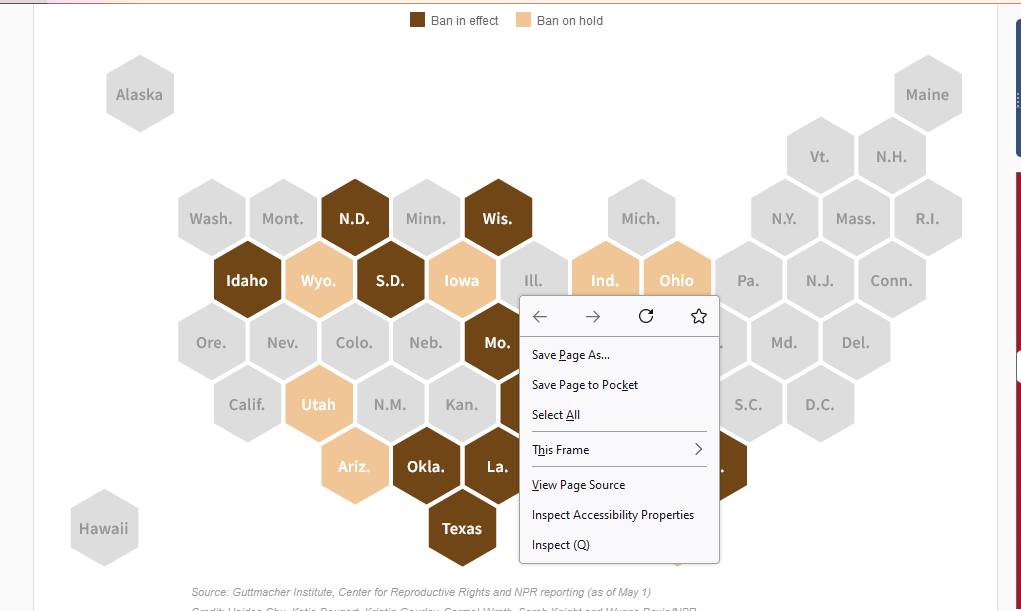 As state after state has passed restrictive reproductive care legislation, Colorado has become an island of abortion protections, surrounded on three sides by states with highly restrictive reproductive care laws — and not for the first time.
As state after state has passed restrictive reproductive care legislation, Colorado has become an island of abortion protections, surrounded on three sides by states with highly restrictive reproductive care laws — and not for the first time.
Most abortions are banned in at least 14 states, with many more severely limited reproductive rights. According to National Public Radio (NPR), “Abortion is currently illegal or heavily restricted in at least 15 states following the Supreme Court’s historic decision in June to overturn Roe v. Wade. That total includes states with near-total bans on abortion as well as those with bans at roughly six weeks gestational age, or after the detection of fetal cardiac activity.” Which is before most women even know they are pregnant.
As a result of the 2023 legislative session, Colorado now has some of the strongest laws in the nation, joining a smaller group of states taking stronger steps to preserve abortion rights after the Supreme Court overturned federal abortion protections in the Dobbs v. Jackson Women’s Health Organization ruling in June, 2022.
Three bills originating in the Colorado Senate offer a package of protections:
- Senate Bill 188 protects patients and providers of abortion and gender-affirming services in Colorado from penalties from other states.
- Senate Bill 189 expands health insurance coverage for abortion, sterilization and treatment of sexually transmitted diseases.
- Senate Bill 190 prohibits what sponsors deem to be deceptive advertising and the use of abortion “reversal” pills in crisis pregnancy centers.
Colorado was also one of the first states to direct agencies to withhold medical records from states seeking to impose criminal or civil penalties on those who receive or provide abortions.
In July 2022, Governor Jared Polis issued an executive order, making Colorado one of only four states with protections for abortion via both executive order and reinforced in state law via SB 188. It prohibits Colorado from recognizing criminal prosecutions or civil lawsuits regarding legally protected abortion care.
Back in 1967, Colorado recognized that there were, even then, certain cases where abortion was a necessary step, and decriminalized those procedures. When Roe v. Wade was recognized as the law of the land, the legislation wasn’t necessary. But now, the state has reclaimed its earlier status as a leader in reproductive rights protections.
For a full list of those states that have completely or severely limited reproductive rights, follow this NPR link: https://www.npr.org/sections/health-shots/2022/06/24/1107126432/abortion-bans-supreme-court-roe-v-wade. Note that Montana just this past week has also joined the list of states severely limiting reproductive rights, setting a limit on abortions at six weeks.
For news coverage of the types of emergency situations surrounding miscarriages that are already arising in states like Kansas and Missouri — follow this link.






Recent Comments